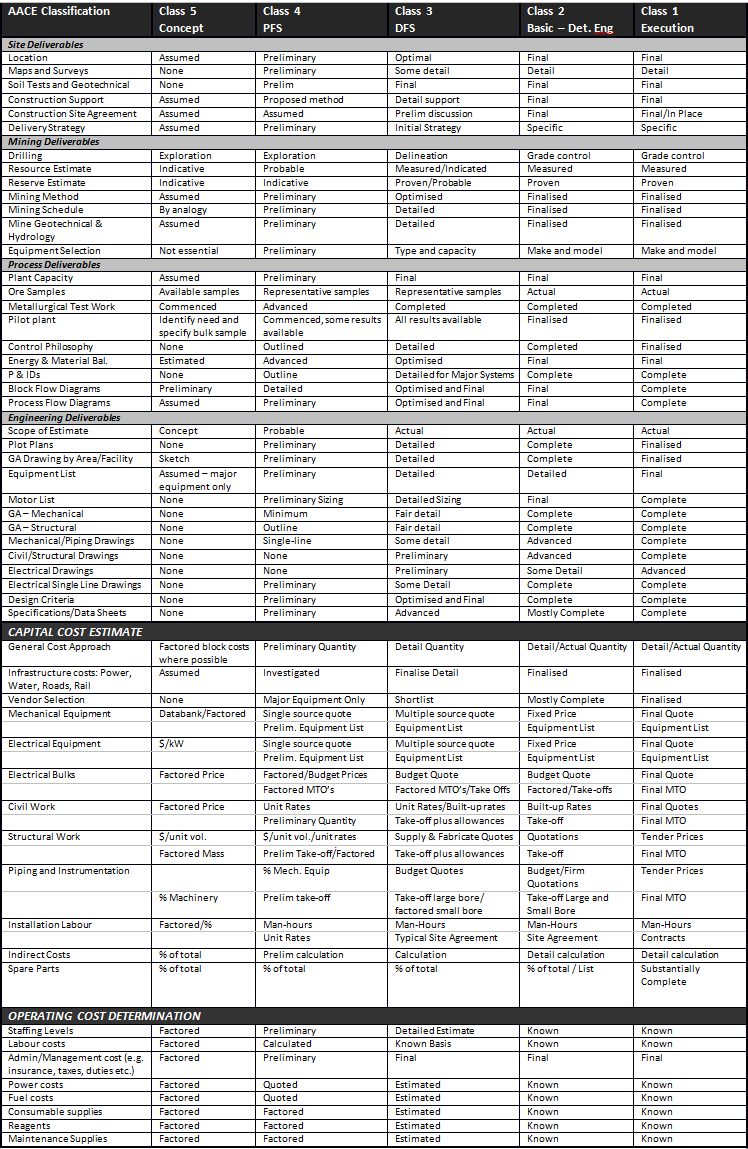Campbell Dynamics offers a complete Project Management service for the delivery of Pre-feasibility and Definitive Feasibility Studies (PFS and DFS). Our extensive experience and access to world-class technical experts means that our studies are comprehensive, robust and provide our clients with the very best foundation for making business-critical decisions about their assets.
PFS and DFS services provided by Campbell Dynamics include:
- Scoping the study and the project under consideration.
- Identifying and engaging necessary resources to complete the study.
- Scheduling the study completion and managing contributing resources to ensure milestones, delivery dates and budgets are met.
- Coordinating stakeholder engagement, feedback and questions.
- Consolidating technical findings.
- Stress testing and imposing constructive challenge on both the capital cost estimate and schedule.
- Carrying out an @risk analysis (Monto Carlo based) on the capital estimate so a sensible contingency provision which reflects the risk profile is developed.
- Carrying out a similar approach on the schedule to determine best and worst case scenarios to enable recommendation of sensible float provisions.
- Development of a transparent and auditable financial model.
- Overall delivery of the study including presenting to key stakeholders (financiers, executive management, board, Joint Venture partners etc.)
Campbell Dynamics adopts a simple but rigorous approach to study development and implementation. Engineering deliverables have to be advanced to a certain level so they can underpin different classes of estimate. Although the terminology used to describe estimate classes can differ (FEL2, Class 3, etc.), a proven approach should always be followed. In the absence of a client-nominated deliverable matrix, the principles of the AACE International (Association for the Advancement of Cost Engineering International) model are usually followed, including the principle of total cost management.
Total cost management is a systematic approach to effectively managing professional and technical expertise to plan and control resources, costs, profitability, and risk. This is achieved by applying cost engineering and cost management principles and proven methodologies to support the management process.
Comparison of Quality of Estimate Classes (an example matrix)
Source: AACE
Depending on the nature and scope of the project, Campbell Dynamics will ensure that the following requirements are considered and pursued where relevant:
- Project context and background.
- Regulatory frameworks and limitations.
- Risk framework with relevant mitigation strategies.
- Resource quantity and quality (in line with JORC requirements).
- Technical requirements and constraints (including CAPEX).
- Operating requirements and constraints (including OPEX).
- Financial considerations including taxation, market outlook and price.
For details of specific studies completed by Campbell Dynamics, please refer to Case Study 1 and Case Study 2.



